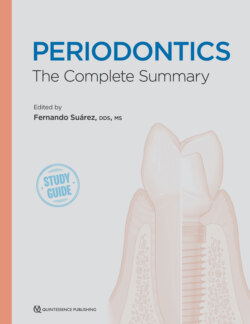Читать книгу Periodontics - Fernando Suarez - Страница 59
На сайте Литреса книга снята с продажи.
Periodontitis as a Manifestation of Systemic Diseases
ОглавлениеSeveral systemic diseases and conditions can affect the periodontium and cause its destruction. Most of these disorders or conditions are secondary to innate mechanisms, although some are acquired through lifestyles or environmental factors. The periodontal effects of these systemic diseases and conditions are mainly through their influence on the immune and inflammatory responses. In addition, these can affect the periodontium by either influencing the course of periodontitis or by affecting the supporting tissues independently of plaque-induced inflammation.75 Albandar et al75 classified those diseases and conditions into three main categories. The first includes systemic disorders with a major impact on the loss of periodontal tissue by influencing periodontal inflammation. These disorders include genetic disorders (eg, Down syndrome), acquired immunodeficiency diseases (eg, HIV infection), and inflammatory diseases (eg, arthritis). The second category describes systemic disorders that influence the pathogenesis of periodontal diseases contributing to periodontal tissue loss (eg, smoking, depression). Last, the third category describes disorders that can cause destruction of the periodontal attachment independent of plaque-induced periodontitis (eg, neoplasms).75
Most of these conditions are determined by the genotype of the host, and they may be modified by environmental and behavioral factors. In addition, periodontitis and certain systemic disorders may share similar genetic and/or environmental risk factors. Consequently, loss of periodontal attachment is a common manifestation of several systemic disorders, which could have an important therapeutic and diagnostic value.
